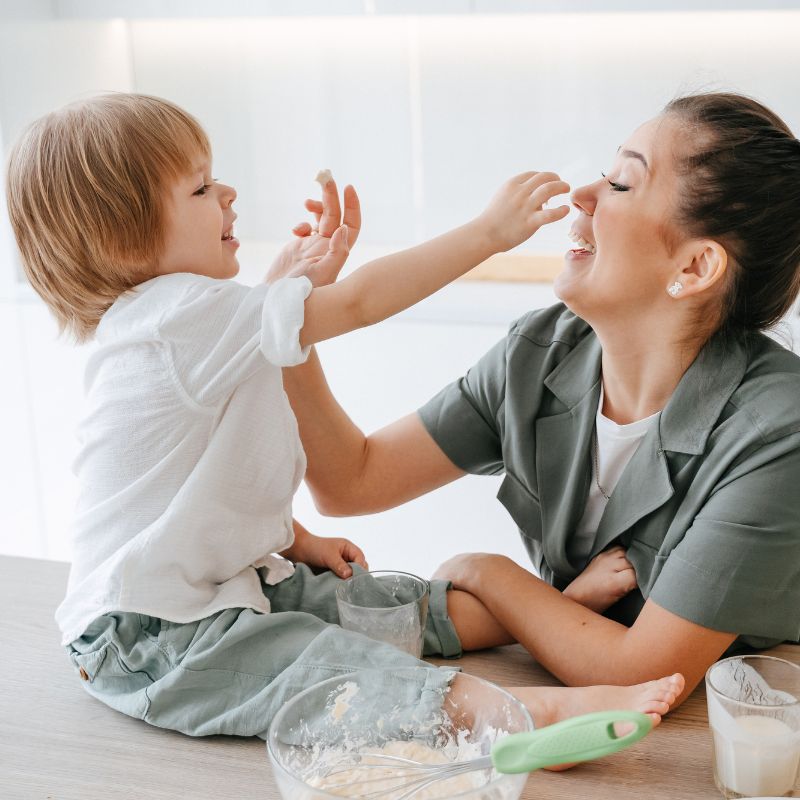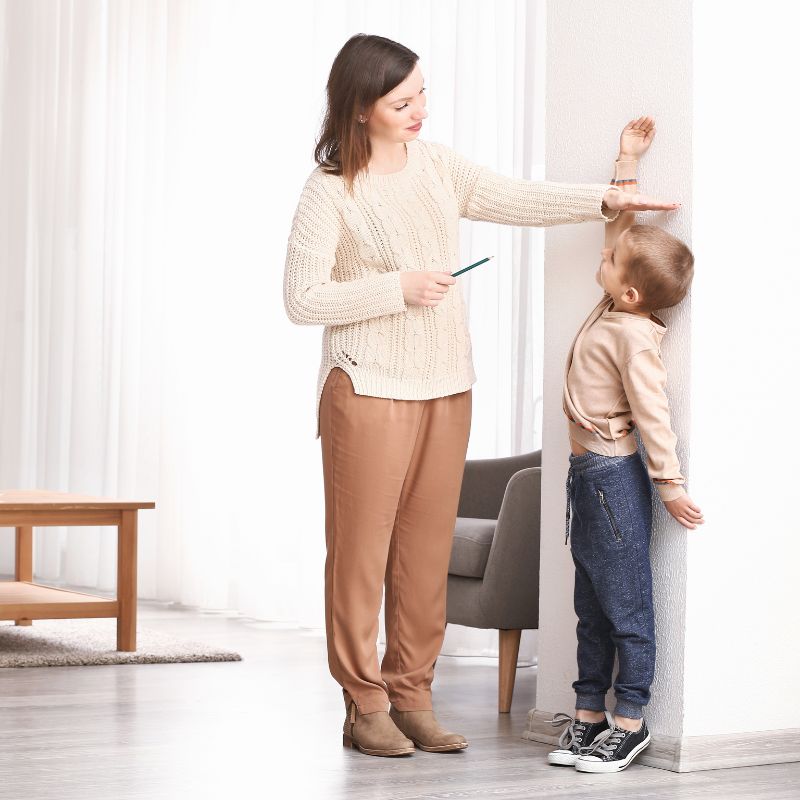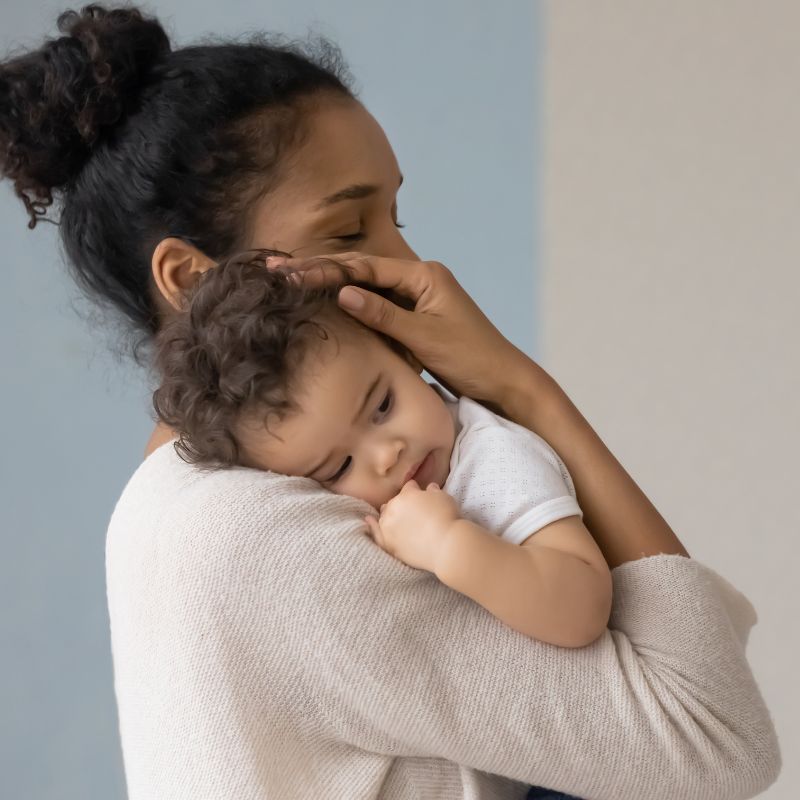Why Keeping Track Of Developmental Milestones Is Important
Congratulations “MOM”! If you are a first-time Mom, you are about to set out on a remarkable journey that will be truly beyond anyone’s imagination. An experience all mothers of a newborn face and it is something that no mother can get used to, no matter how many babies she may have had and nurtured. Every time it will be different. It is truly a one-of-a-kind life experience each time!
What is common though is the immense pride and delight a newborn brings to every moment from now on. At the same time, every mother is also likely to feel a little tired and perhaps even a bit apprehensive about what comes next. Rest assured, this is normal.
The sooner you reconcile to the feelings of being inadequate and overwhelmed, the better it will be for you and your baby. Accepting the reality that every baby has most of its growth dynamics already written into its DNA will be your first step. However, what remains under your control are the experiences the infant will be exposed to in the environment it is born in.
As a parent, you play a critical role in nurturing your child’s development from birth, supporting her in learning crucial life skills. This is why the stimulus young children encounter during their first few years of life becomes paramount to how they grow up into adults.
This article will try and explain some of the preschool developmental milestones you can expect to see over the first 12 months after a baby is born. During this phase, keeping a journal will be a good idea, as it will help record real-time experiences that you could then share with your husband.
A little awareness will go a long way

Research has found that most people do not have a clear understanding of child development activities and how they need to nurture babies in a way that will help them grow into robust, smart and healthy adults. Ignoring this fundamental responsibility can be extremely harmful to children, limiting their progress and potential later on in life.
The years between 0 to 5 are extremely sensitive because this is when the brain grows the fastest and is more easily impacted by positive and negative experiences. Remember, a child’s brain reaches 80% of its adult volume by age three.
A positive start in life ensures that the brain development of an infant is healthy and is exposed to positive and loving life experiences. A weak foundation in this area increases the likelihood of a child carrying negative experiences well into adult life.
While most of the development stages are achieved within a certain timeframe, it is essential to keep in mind that each child is unique and different and not all of them will hit the milestones at the same time. While milestones are indicators as to when to expect certain skills to develop, these stages are not cast in stone. Delays are natural and need to be accepted as such. So don’t worry, all things happen for the good.
Early childhood development is sequential

All of us are aware that the growth of a baby begins in the womb as a single cell. Gradually developing during the weeks and months of pregnancy and forming into organs and limbs, preparing for life in the world after the baby is born.
Growth doesn’t stop after birth either but is a continuous process. It is also the time when the limbs, organs and muscles are particularly vulnerable and prone to injury. This is the reason why supporting a baby’s head, posture and positioning in its first few weeks of life becomes very critical.
Another little-known fact is that babies are born with unconscious reflexes, these help the baby engage in basic survival instincts, such as sucking to feed, and reacting to sudden noises.
Please note that complex skills like running occur after simpler abilities such as crawling and cruising have already been achieved. In most cases, all the child development milestones will be eventually met without causing any lasting developmental issues. If the baby is born before the full term, this can impact development but such babies catch up by the time they are 2 years old.
Traits to keep track of

Child development can be assessed based on four key parameters: physical, intellectual, emotional and social. While these are distinct and separate, they are interdependent and closely linked. The growth of one trait has an impact on the other. For instance, as a child’s intellect grows and sharpens, it will affect the child’s curiosity levels.
So take a real close look at these factors to understand how important they are and how deeply they are all interconnected.
Physical

As the baby grows, the bigger muscles in the back, arms and legs and neck develop. These help the baby to roll, crawl, sit upright, move arms and legs, stand and make the first of the many attempts to start walking. Gross (large muscle movements) and fine (small movements) motor skills contribute to the overall physical development of the baby.
While fine motor skills are the smaller physical movements, they rely upon the baby gaining more strength and control over the smaller muscles in the hands, wrist and fingers. These muscles help in gripping a crayon, pencil, or paintbrush, and play a big role in helping to form letters and in writing.
These are just a few of the physical development milestones that help babies to gain control and develop a greater understanding of the world around them.
Intellectual

Research has found that a child’s cognitive skills develop the most in the early years than at any other time in their lives. Newborns have a natural interest in the world and take great interest in looking at shapes and objects, and respond to different sounds and gestures.
A child’s brain does most of its development during early childhood, so a thorough stimulation from a young age supports positive brain development and curiosity.
For many parents, encouraging a child’s intellectual development is a point of major concern. Newborn infants are actively taking in information and learning new concepts. They constantly discover new things about the world and about their own bodies.
Parents are in a position to help shape how their babies begin to learn, think, and grow. For example, when your baby shows interest in an object, you can help the child touch and explore the item as well as tell the baby what the object is and what it does. Demonstrate even though the baby may not be in a position to understand. Speaking and telling, and starting to bond is a fantastic opportunity.
Adults find it difficult to understand that infants and very young children also have remarkable intellectual skills. In fact, babies are always learning, thinking, and exploring the world around them.
As they grow older, don’t forget to continue encouraging your child and remember to have a great deal of patience.
Young children will have an endless stream of questions about each and everything around them. As a parent, you too can ask your own questions to help your child become a creative problem solver.
If and when you are in doubt and you are stumped for an appropriate answer, allow your child to come up with an original solution to the problem. This sort of interactive learning help to encourage both intellectual development and build self-confidence.
Emotional

Emotional development in essence involves learning what feelings and emotions are, understanding how and why they happen, recognising these feelings and those of others, and developing effective ways of managing these feelings.
Babies are born with the ability to show Basic emotions such as happiness or distress are emotions babies are born with. It is through a baby’s expression of these emotions that parents will know how to respond and decipher what their baby needs. Your baby will begin displaying more emotions as she gets older.
The first of the emotions you will notice in babies will include joy, pain and fear. As the sense of ‘self’ matures, more complex emotions like shyness, surprise, elation, embarrassment, shame, guilt, pride and empathy will emerge.
A baby’s sense of ‘self’ is strongly influenced by the perceptions it has. A baby’s type of attachment to its parent is the basis of how she will develop her own self-esteem.
A secure environment leads to a positive emotional, intellectual and social outcome. They develop confidence and will be ready to explore new things and relationships. It also minimizes the risks of the child developing a negative lifestyle.
By talking to babies and young children about emotions you can help them to become more aware of their own emotions. This process also helps young children to better manage their own emotions as they grow over time.
The rate of emotional development in a baby, however, will vary from child to child. Some babies may show a high level of emotional skill development, while others take longer to develop the capacity to manage their emotions.
This is why it is important and very helpful to be mindful of the feeling and emotions of babies and young children. While some emotions are easy to identify, others are less obvious. Learn to tune into your baby’s emotions, this involves looking at her body language, listening to what she is saying (even if it is just baby’s blabber), how she is saying it, and observing her behaviour.
This will allow you to respond more effectively and be able to offer more specific guidance to help your baby manage her emotions.
Teach the words to use for dealing with strong or difficult emotions, such as anger and frustration, in a positive way. Also set limits on aggressive, unsafe or inappropriate behaviours very early in life. You can also be a role model. Showing children different ways to understand and manage emotions will help them learn from your example. Try not to be angry in their presence. But if you do lose your cool, say sorry, and show how are going to make amends.
Social

Most children are inherently social, creative and motivated to exchange ideas, thoughts, questions and feelings. Babies use gestures, and movements, and exhibit visual and non-verbal cues, and sounds, to engage and develop relationships.
By planning experiences with a focus on conversation and social skills, a parent can promote positive interaction and communication. This will help young children to successfully communicate their wants and needs, and nurture meaningful relationships with their peers.
Babies need social engagement right from birth as it helps to stimulate and teaches them to respond correctly. This form of social interaction is closely aligned with intellectual development. The interactions a baby has with her parents help them to process language, and cognitive and social skills which form the basis for social interaction in the child’s brain.
When a child does not receive enough interaction in the early development stages, it can have negative implications for their communication in the future.
Physical Milestones Checklist during the first 12 months

Newborn:
- Communicates through cries
- Sees best from 8 to 10 inches away
One month:
- May respond to familiar sounds
- Notices faces
Two months:
- Begins to lift head during tummy time
- Starts to smile at you
Three months:
- Opens and closes hands
- Follows moving objects
- Likes to play & interacting
Four months:
- May begin teething
- Holds the head up unsupported
- Starts to smile & chuckle
Five months:
- Babbles and makes sounds with mouth
- May be able to distinguish between colours
Six months:
- Begins to try sitting up
- Rolls from stomach to back
- Reaches for toys and places them in the mouth
- Enjoys looking at themselves in the mirror
Seven months:
- Loves dropping things on the floor
- Starts to copy sounds & gestures
- Finds partially hidden objects
Eight months:
- May begin to crawl
- Starts to lean over to pick up toys
Nine months:
- Sits up unassisted
- Points out at things
- Responds to their name
- Starts to understand object permanence
Ten months:
- Can pick up things with thumb & index finger
- Develops separation anxiety
Eleven months:
- Can climb steps while assisted
- Learns to adjust tonal sounds, (more like speech)
Twelve months:
- Pulls up to stand and may attempt to walk holding onto furniture
- May start to call out to parent Mama or Dada
- Uses basic gestures, like waving and shaking their head
- Starts to use things correctly, like brushes and cups
About My Gym
My Gym involves children in dynamic games, physical activity and movement that help in building neural networks in the brain. Making it easier for children to acquire intellectual skills, navigate complex social situations, and nurture emotional development.
To find out more about how My Gym plays a key role in supporting “whole-child development,” please visit any of our centres. Choose a day when you will be relatively free and come over with your child in tow. Your child could be an infant (as young as 6 months), a toddler or a preschooler, age is not a bar for enrolling.
My Gym has specially designed child development programs that lay a firm foundation for personal, academic and future growth by involving your child in age-appropriate thinking and problem-solving skills.
Please note: My Gym classrooms are thoroughly sanitized every day — the tables, the chairs, the children’s activity stations and everything else the child might touch is made safe and clean. Please wear a mask, wash hands frequently, and practice social distancing.
Frequently Asked Questions
What are the physical milestones of early childhood?
The following are a few components of the early childhood physical milestones checklist:
– Crawling & rolling
– Sitting up straight
– Moving arms & legs
– Standing up & trying to walk
– Pincer grip for crayons, pencils, or paintbrushes
What is the most important milestone in development?
During early childhood development in children, taking the first step, smiling for the first time, uttering the first words, waving “bye-bye” for the first time are just a few of the most important child development milestones.
What is the importance of early childhood development?
Early childhood development is vital for the following reasons:
1. Establishes a solid foundation for academic learning
2. Aids in the achievement of social and emotional milestones
3. Enhances cognitive abilities
4. Shapes a child’s personality from childhood
5. Enhances critical thinking, logical reasoning, and problem-solving abilities.
What are the characteristics of early childhood?
Preschool developmental milestones have the following fundamental characteristics:
– Recognizing familiar voices & faces
– Using gestures, words, and play to interact with family and peers
– Walking & running while playing
– Imitation gestures & sounds
– Following instructions
– Learning to use a pincer grip to hold crayons or a spoon
What are 3 main aspects of social-emotional development?
The three primary aspects of early childhood social and emotional milestones are:
1. Experiencing interactions and bonds with family and friends.
2. Ability to recognise and express one’s own emotions and feelings
3. Increased levels of self-confidence and self-esteem



